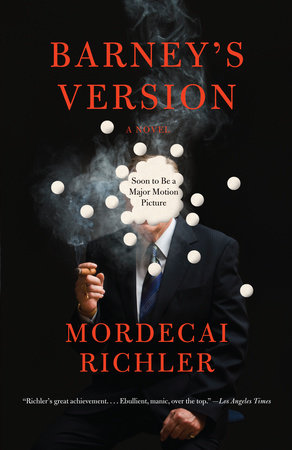Barney’s Version Reader’s Guide
By Mordecai Richler


1. Discuss the title, Barney’s Version. To what do you think it is referring?
2. What are the major differences in Barney’s life between each of the memoirs? Do you think that the women for which each section is named has an impact on his life? Why do you think the novel is structured in this way?
3. What attracts Barney to his second wife? Why do you think he never gives her name, referring to her only as “Mrs. Panofsky”?
4. Is Barney a likable character despite his various negative qualities? Why or why not?
5. Barney says, “Never tell the truth. Caught out, lie like a trooper.” Does this make the novel more or less ironic? Because of this belief, is Barney an unreliable narrator? Do you think any “memoir” is truthful, since it is inevitably based on memory?
6. The novel is punctuated by footnotes written by Michael, Barney’s son. What do these footnotes reveal about Michael’s character? Why do you think he decided to annotate his father’s memoirs?
7. Despite truly loving Miriam, his final wife, Barney still cheats on her. Why do you think he does this? What about his character drives Barney to such destructive and hurtful actions?
8. When Michael asks Barney’s lawyer if his father had murdered Boogie, the lawyer simply tells him: “The truth is he was your father.” Can you explain what he meant by this cryptic answer? Was Barney really guilty?
9. Near the end of the novel, Michael explains Barney’s philosophy: “Life was absurd, and nobody ever truly understood anybody else.” Do you take this as being ironic or sincerely his belief? How does the final scene of the book influence your answer?
10. Of our contemporary satirists, Mordecai Richler is considered one of the greatest. What about this book is satirical and what or who is his target?
11. In part, Barney’s Version, talks about becoming older and eventually dying. How does Barney approach both? Is his approach positive or negative?
Just for joining you’ll get personalized recommendations on your dashboard daily and features only for members.
Find Out More Join Now Sign In